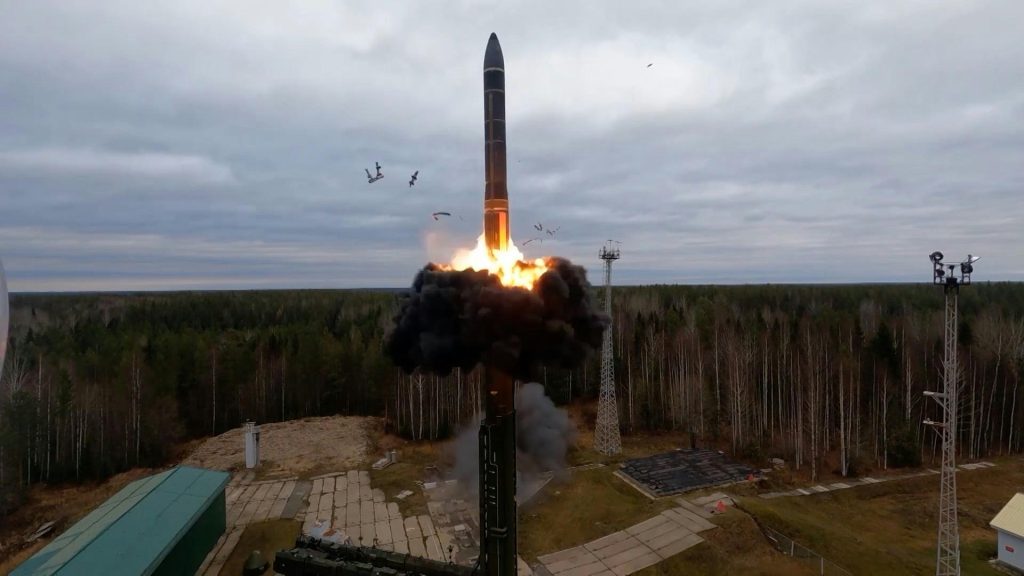NATO and Ukrainian ambassadors convened in Brussels on Tuesday to address Russia’s recent launch of an experimental hypersonic intermediate-range missile. The strike, carried out on the Ukrainian city of Dnipro, was described by Russian President Vladimir Putin as a test of the new Oreshnik missile.
Putin stated the missile was deployed in retaliation for Ukraine’s use of US- and UK-supplied weapons within Russian territory. He also warned that Russia might target military sites in countries supporting Ukraine’s war effort.
Ukrainian President Volodymyr Zelensky condemned the attack as “the latest bout of Russian madness” and called for enhanced air defence systems to counter this emerging threat.

The NATO-Ukraine Council meeting, initiated by Kyiv, sought “concrete and meaningful outcomes” to bolster Ukraine’s defences. However, NATO diplomats tempered expectations, with discussions focusing on updates from Ukrainian officials and reiterations of NATO’s ongoing commitment to Ukraine.
The talks occur amidst heightened battlefield challenges for Ukraine, as its forces face mounting pressure from Russian advances in the east. Additionally, concerns about the future of Western aid loom large following Donald Trump’s re-election in the United States. Trump has questioned Washington’s extensive military assistance to Ukraine and hinted at brokering a swift end to the war.
Despite these uncertainties, NATO’s senior leadership maintains that allowing Putin to emerge victorious from any negotiations is not in the West’s interest.
The NATO-Ukraine Council, established in 2023, gives Kyiv the ability to call meetings with the alliance in response to urgent security concerns.


